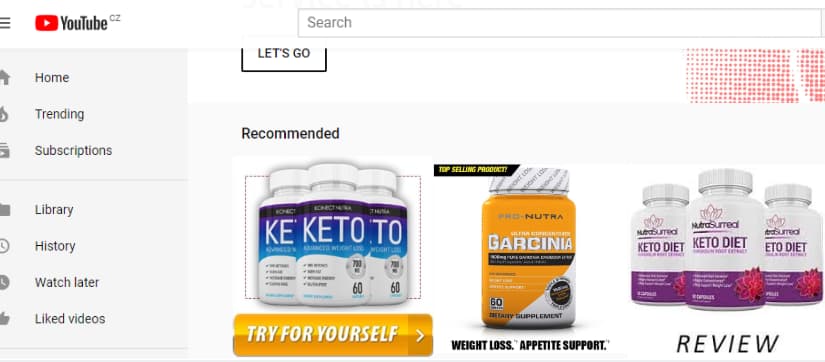All industries have their shady sides, and affiliate marketing is no different. In this article, we’ll look at some of the tactics used by blackhat affiliates marketers.
What is Blackhat Marketing?
Blackhat marketing is a general term applied to marketers who break the rules, and sometimes the law. In this article, we’re going to look at how blackhat marketers break the rules and why.
Why Blackhat Marketing?
The main reason people use blackhat techniques is that it allows them to get results fast. However, it also means they risk being penalized by Google and other platforms.
The key difference between blackhat and whitehat marketing is that, in whitehat marketing, the aim is to play by the rules until eventually, they work in your favour. In blackhat marketing, the aim of the game is to do the opposite, by avoiding or abusing the rules to get quick results before the algorithms punish you and your campaign is wiped from the face of the earth.
Blackhat Affiliate Marketing Techniques
There are a lot of blackhat techniques which affiliate marketers use. In fact, there some which you might not even realise are against the rules.
If you are trying to create white hat campaigns and drive organic traffic, then these SEO tactics are best avoided.
Poor Content Quality and Copying
This is definitely one you want to watch out for if you’re not a blackhat marketer.
It might seem that adding as much content to your site will naturally mean that you’re going to hit the mark sometimes, even if the quality isn’t quite there. However, it can harm your ranking, thanks to the 2011 Google Panda Update.
Keyword Stuffing

Keyword stuffing is one of the oldest tricks in the book and, as a result, one of the ones which is most easily punished. It involves using lots of irrelevant keywords on your site to try to direct people to it.
Google is now very good at picking up when people are doing this, so if you’re selling health products and you try using keywords like ‘video games’ and ‘dog sitting services’ to get more attention, you’ll actually end up losing more.
The best way to manage keywords is to make them as relevant as possible. By doing this, you can improve your site’s bounce rate and head up the rankings.
The philosophy behind keywords is simple. When people type something into a search engine, the results should most accurately reflect their desires. If someone wants to find ‘golf courses in Bermuda’, then the top results should provide a simple list or information about golf courses in Bermuda.
The difficult part about keywords is figuring out which ones are the best to use and then ensuring that they flow naturally into your site. One way of doing this is making a list of questions you think customers will have, and then generating content based on those questions. The more customer queries you can answer, the more trust you will gain from search engines and visitors alike.
Two common examples of keyword stuffing are:
- Long lists of places such as countries and cities where the web page needs to rank more highly.
- Unnatural phrasing to attempt to get keywords in as much as possible.
Baiting and Switching

‘Baiting and Switching’ involves generating a lot of content around a certain topic and rising through the ranks by following the guidelines. However, once ranked by Google, the content is then swapped for the blackhat’s offer.
Here’s what it might look like if YouTube did it:

The reason for the bait and switch is that some topics get much more traffic than others. If a blackhat marketer can rank highly in a popular search field, then more people will visit their offer. However, the downside is that the traffic will be lower quality as what they see is not what they searched for.
Paid Links
Links are one of the core aspects of Google’s PageRank system. The more links which point to a site, the higher up the rank the site will be, which is why Google doesn’t like it when you pay for links.
According to Google’s link scheme:
‘Any links intended to manipulate PageRank or a site’s ranking in Google search results may be considered part of a link scheme and a violation of Google’s Webmaster Guidelines. This includes any behaviour that manipulates links to your site or outgoing links from your site.’
Paid links fall into this group and Google will punish the buyer and the seller whenever they find paid links are being used. This is because Google wants to make searches as reliable as possible, and paid links to irrelevant content make that harder to do as it influences Google’s rankings unfairly.
If you are using paid links and want to get rid of them quickly, you can use Google’s Disavow Tool. For more info, check out: What is Google’s Disavow Tool?
Link Farming

Link Farms are sites specially set up to build links for other people’s sites. They often look like blogs, however, each article is designed to use lots of paid links to sites.
The content on link farms tens to be low-quality the links themselves contain the keywords that the sites are trying to rank for.
Google is now very good at detecting link farms, and the whitehat approach of building a good site that people want to use is the only way to ensure good rankings in the long-term.
Comment Spamming

This is one that you’ve probably seen quite a lot, and it can be pretty annoying. It essentially involves advertising your site in the comments of other sites and more often than not, it’s irrelevant. In short, it doesn’t really work that well and just makes your site seem scammy.
One whitehat method of getting your Google rating up using comments is to use Quora. If you are an expert in your field and know how your product can help people, then answering people’s questions on Quora and then linking them to your site to gain extra information is perfectly legitimate.

